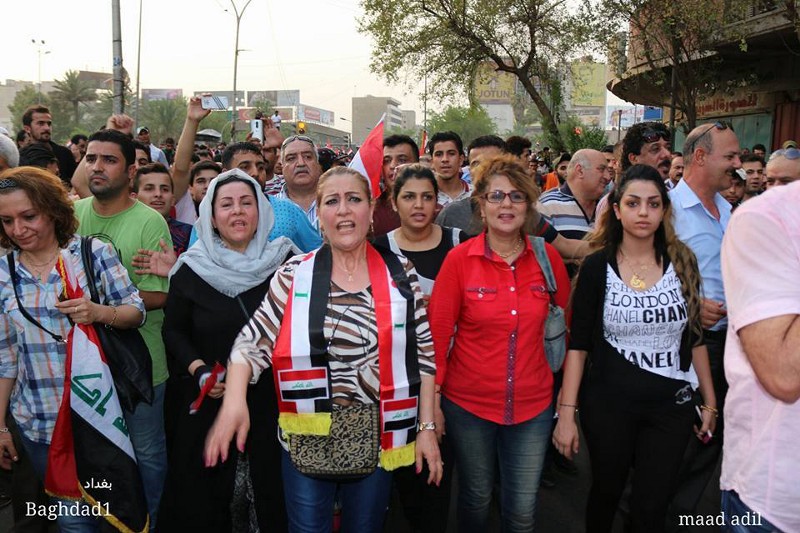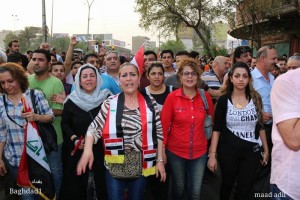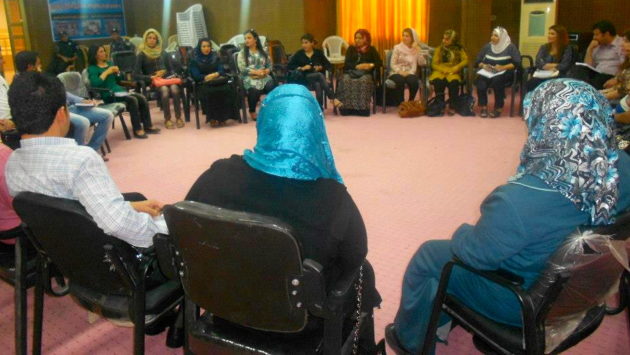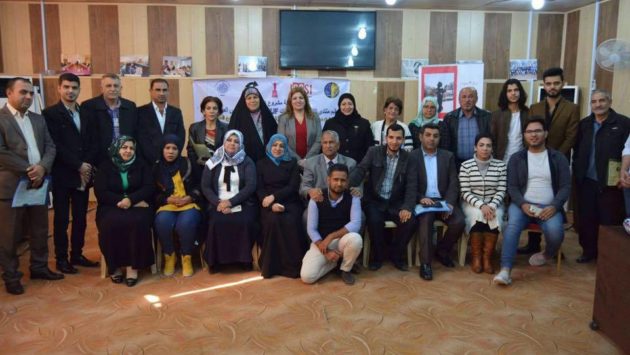Iraq: Are Women Going To Be Represented in the New Cabinet?
Muhamed Hassan – Feb 22, 2016 – Immersed in Thinking Blog.
Iraqi politics has been sharply defined by the absence of women in government posts, a phenomenon which has prompted some women parliamentarians to issue a plea for the prime minister to include them in the next round of his much vaunted cabinet reshuffle.
While Iraqi women enjoy some minimal presence in Iraqi parliament, with more gains in the 2014 elections, the political stage is still made by men, performed for men and benefited by men.
Intisar Al Joubouri, deputy chairwoman for women, childhood and family parliamentarian committee, told Al Sumaria news outlet that Iraqi women endured difficult circumstances post 2003, as a result of the violent campaigns that raged unmercifully and relentlessly.
Al Joubouri wanted the prime minister, Haider al Abadi, to be fair to women and offer them a number of key ministerial jobs. According to her, women were sidelined in the past, and their current presence in parliament was only peripheral.
In fact this is only a reflection of the role of women in society at large, and how they are perceived as second class, or merely functioning at their best when they are housewives or mothers.
This is a far cry from 1950s, when the government of Abd al-Karim Qasim, Iraqi prime minister after the monarchy, appointed Naziha al-Dulaimi to become the first woman minister in Iraq’s modern history, and the first woman cabinet minister in the Arab world.
As Iraq got mired in violence and lawlessness, women had to take a less active role in daily life, leaving the men to indulge in killings and decision making. Thus, before 2003 women bore the burden of wars and sanctions, while post 2003 they bore the brunt of sectarian violence, losing husbands, brothers, children, and fathers.
Another tragic chapter in Iraqi women’s suffering is the plight of Yazidis under Daesh whereby 3500 women are still missing, while several hundreds were abused as sex slaves.
As Iraq is going through an acute financial and economic crisis and the country is embarking on installing a new cabinet, it would only make sense to have a cabinet that fully exploits the best efficient human resources available, whether male or female.





